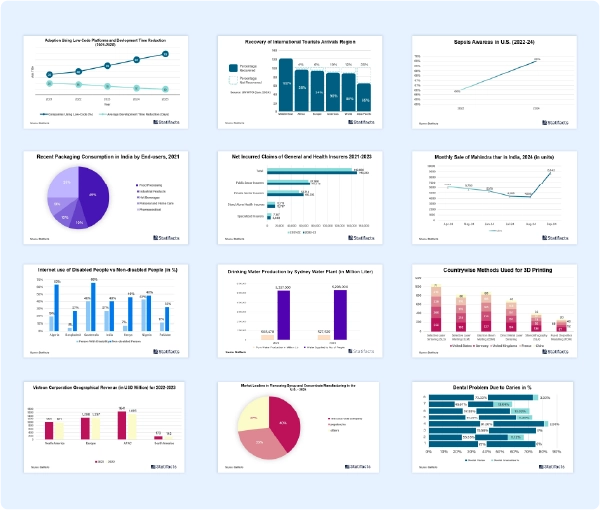The U.S. biotechnology market size surpassed USD 621.47 billion in 2024 and is predicted to reach around USD 2,018.12 billion by 2034, registering a CAGR of 12.5% from 2025 to 2034.
U.S. Biotechnology Market Report Highlights
- By Technology, the DNA sequencing segment held the largest share in 2024.
- By Technology, the Nanobiotechnology segment is expected to grow rapidly during the forecast period.
- By Application, the Health segment dominated the market accounting for the largest share in 2024.
- By Application, the Bioinformatics segment is anticipated to witness gainful growth over the forecast period.
The U.S. biotechnology market is considered to be one of the largest and most advanced due to its advancements in healthcare, industrial processes, agriculture and environmental sustainability. It is fuelled by biopharmaceuticals and focuses on creating innovative therapies including gene editing, biologics, and customized medicine. The FDA and NIH along with other regular agencies ensure safety and efficacy while influencing the development of the market. The industry provides an important contribution to the U.S. economy with the help of exports and employment creation, as well as emerging technologies such as synthetic biology and CRISPR gene editing are redefining possibilities.
A major factor that is driving growth for the U.S. biotechnology market is the demand for innovative healthcare solutions. The demand for tailored medicines with greater efficiency and fewer side effects is growing as genetic disorders, chronic diseases, and peculiar illnesses are becoming more common. The development of customized therapies based on the patient's genetic profile is made available due to developments in the market. Government programs, significant R&D expenditures, and venture capital financing contribute to the betterment of the market, which makes healthcare innovation a key component of the market's growth.
Advances in agricultural biotechnology are a major contributing element to the development of the biotechnology market in the U.S. Biofertilizers, genetically modified (GM) crops, and pest-resistant plants are some of the breakthroughs that are transforming agriculture by the world's expanding population and increasing demand for sustainable food supply. These approaches minimize the negative effects of farming on the environment while boosting nutritional value and crop output. The agricultural biotech sector is further influenced by government regulations and financing programs that promote environmentally friendly practices and the implementation of new technologies, which significantly contribute to the industry's growth.
Innovations and rapid product release are encouraged by streamlined approval procedures and incentives for minor medications and revolutionary treatments, which is boosting growth in the U.S. biotechnology market. Similarly, collaborations among pharmaceutical companies, academic institutions, and biotech enterprises enhance information exchange and resource optimization. U.S.-based bitcoin companies' entry into foreign markets increases the market growth potential income. The need for innovative products is driven by a greater public awareness of the benefits of biotechnology in healthcare, agriculture, and sustainability. The discovery of drugs is accelerated and operational efficiency is improved with AI, big data analytics, and machine learning are used in biotech development.
The U.S. biotechnology industry continues to grow at a pace due to artificial intelligence (AI), which accelerates the research and improves productivity in various sectors. Algorithms based on AI reduce the expense and time associated with traditional drug development techniques through examining large datasets to find potential therapeutic candidates. Antibody structures are projected by machine learning algorithms, which enables the creation of more
potent treatments. AI can improve crop output forecasts and pest control in biotechnology for agriculture. AI also makes customized medicine easier by evaluating clinical and genetic data to customize patient care. As a result of these developments, AI has transformed the business by increasing accuracy, streamlining procedures, and stimulating creativity.
The requirement for reasonably priced biotechnology details to global health issues is increasing. Generating vaccines, and tests for infectious illnesses such as malaria, TB, and new pandemics is an aspect of this. The affordability and rapid solutions can help increase access to healthcare in middle or low-income countries. These initiatives support international goals and provide healthcare a chance in underdeveloped nations.
Similarly, biomanufacturing is set to expand as industries look for more environmentally friendly production techniques. With the help of living organisms like bacteria, algae, or yeast, biomanufacturing makes it feasible to produce bio-based objects like medications and textiles. These procedures are becoming increasingly effective and scalable due to developments in metabolic engineering and fermentation technology. This shift is especially significant for industries trying to implement sustainable practices and reduce their carbon impact.
The development of flexible biological systems is made possible as synthetic biology is transforming various industries. This includes the production of biodegradable plastics to address plastic pollution, sustainable biofuels to decrease dependency on fossil fuels, and lab-grown foods to solve environmental and food security problems. Fighting climate change and maintaining environmental sustainability may also be greatly aided by innovations such as bioengineered microorganisms for water purification or carbon capture.

